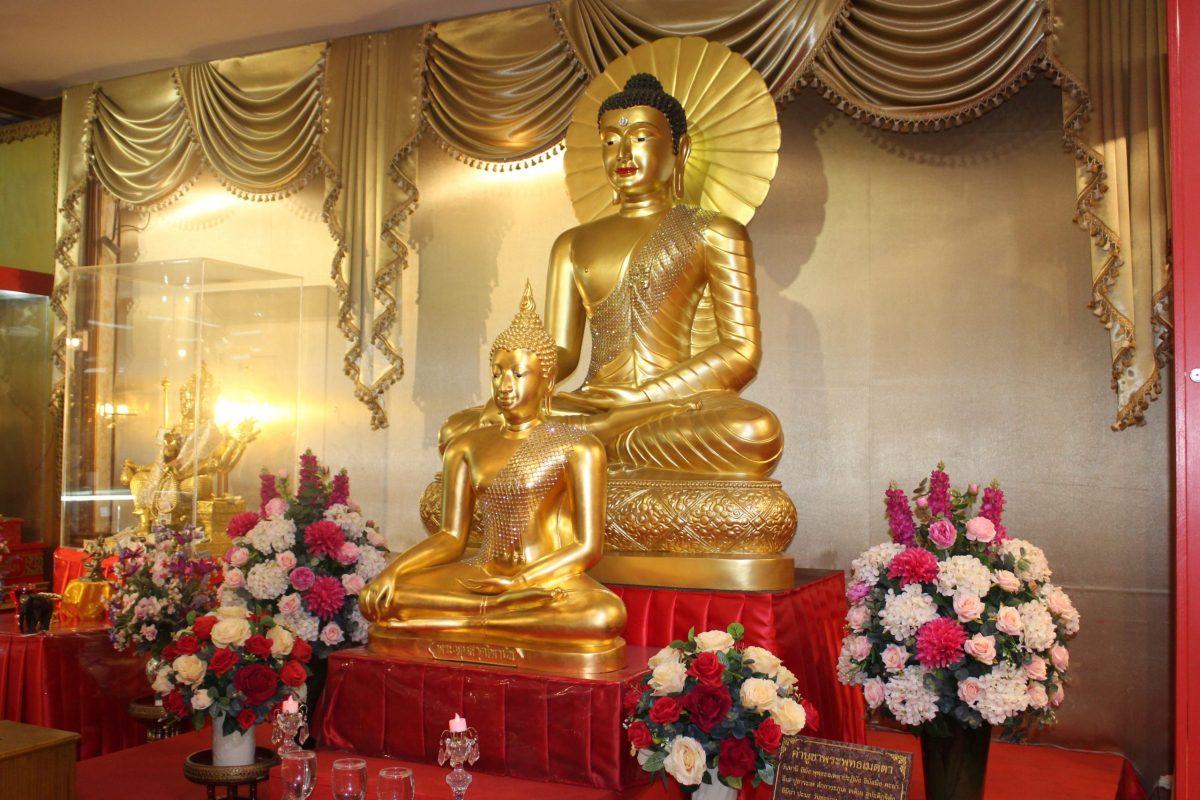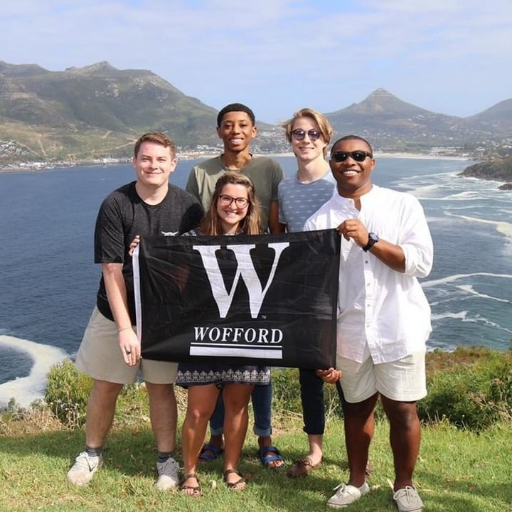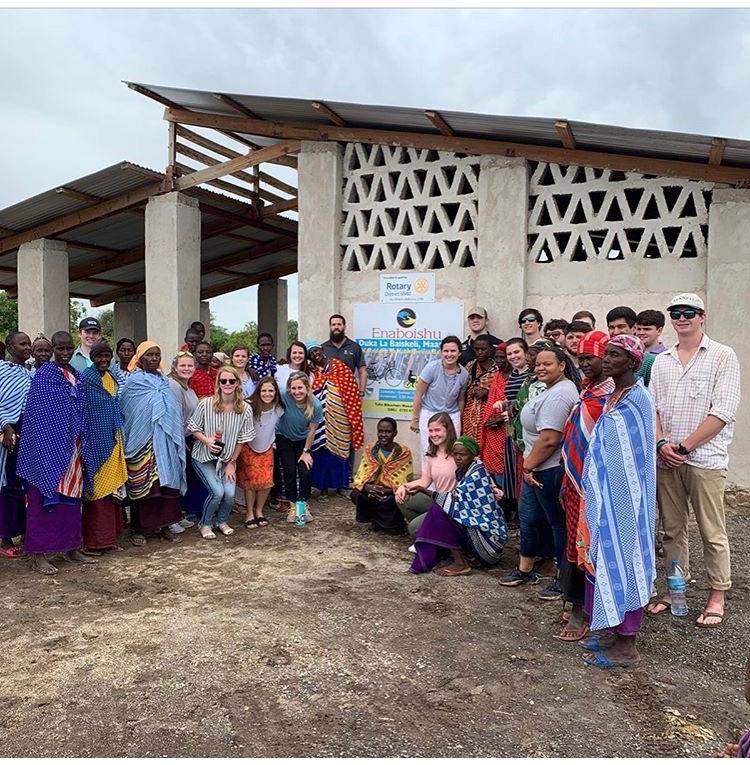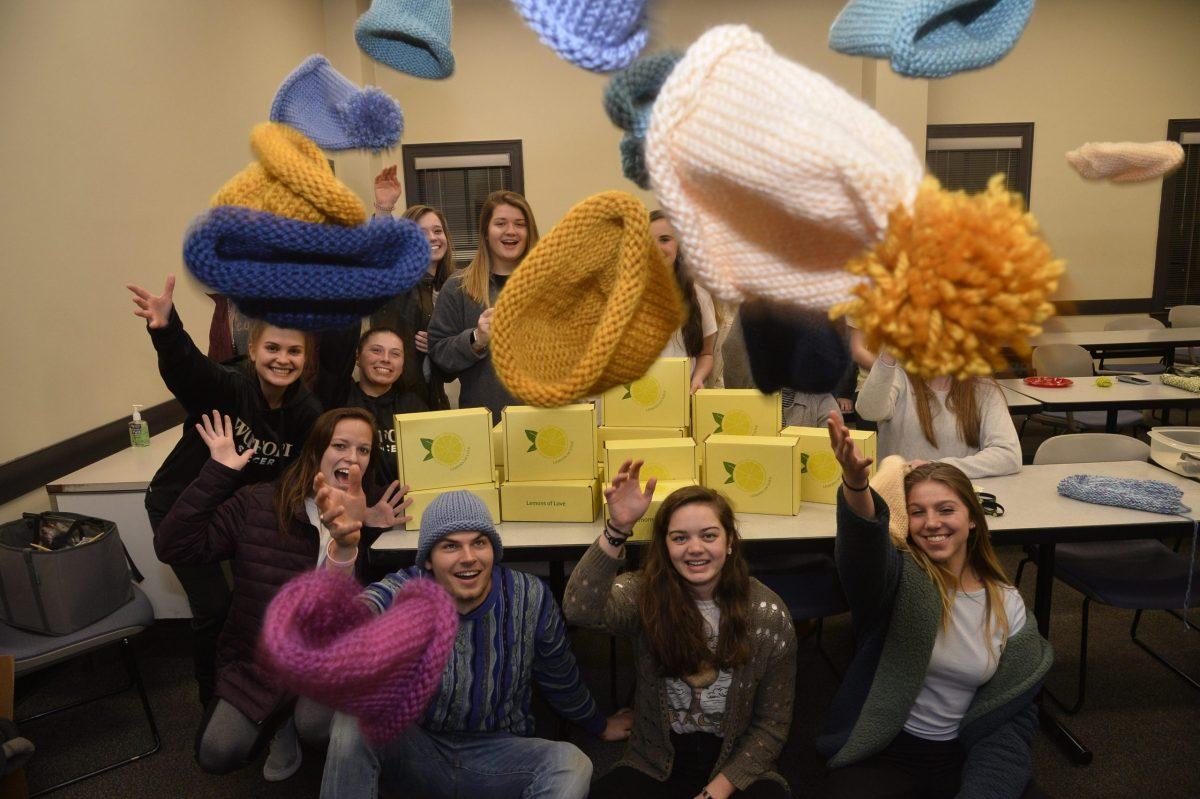How culture is respected and disrespected by Terriers abroad
As we travel abroad, we cross borderlines into countries that we have only heard about in readings and lectures. We hand over our passports to an agent and officially cross into a new land. However, this territorial line is not the only boundary that we cross while abroad. Floating around us in the hearts of locals, architecture of buildings and an unfamiliar smell, are customs and courtesies that Wofford students and faculty sometimes overlook. Interim 2019 was no different than those of past years; students of all years spent little time in preparation for travel abroad, then boarded planes to spend one to three weeks in a foreign country.
“Thailand: Culture, Geology & Wildlife,” was advertised as a travel interim that offered insight into Thai culture and geography through visits to temples and national landmarks as well as exploration of different regions. While JAN 427 may have done just that, it can be brought to question if it was done in the right way.
Before spending 17 days in the country, students were assigned research topics and given an overview of Thailand and its culture. Dr. Li Qing Kinnison, professor of Chinese studies, said, “Our goal was to have students prepare before the trip.” One of the main aspects of the trip was an interactive study of Buddhism, the country’s predominant religion. To achieve this objective, the group visited multiple shrines and temples during their time in Thailand. One of the students remarked, “When I was in Thailand one of our faculty advisors definitely showed some disrespect in terms of the Buddhist religion. We visited around 10 temples and it was really upsetting that by the last two temples one of our advisors wouldn’t even go into the temples. The advisor said, ‘it doesn’t matter, none of this is real anyways’.”
After interviewing Laura Braun, Assistant Dean for International Programs, and coordinator for interim abroad, it became evident that there is no required training in intercultural competence for students or professors. Braun said, “Intercultural competency is something we promote and want to make sure they all have access to. Before departure there are workshops that they attend and they’re usually more health and safety focused.” As far as education in intercultural competence, she informed, “We do make it available to professors and students who want that training.”
While in Thailand, students were also given the opportunity to visit Chiang Mai Tiger Kingdom. Dr. Kinnison says, “We offered that as an optional activity because it was not on the agenda, for, I think, liability reasons. I think they were sedated so they couldn’t jump.”
The tigers were described as scared, wide-eyed and struggling. This sparked up a conversation among students, which was interjected by a Wofford professor’s spouse who said, “We should just collect all the tigers and release them at the Mexican-American border.” It was comments like these that traveling students say were very “distracting” and made it difficult to focus on the meaning behind the trip. This student said, “There should be some sort of intercultural course prior to faculty leading interims.”
Incidents such as these raise questions about professors’ qualifications for leading an interim abroad, and while interim is a hallmark of Wofford, and a major selling point, the question remains: Are we doing this whole thing right?

Another interim abroad transported students to the streets of Japan. After three days of classroom instruction on “survival Japanese,” basic etiquette and different aspects of the Buddhist and Shinto practices, students moved throughout the country for 16 days.
For one of the excursions in the city of Kyoto, students were dressed in either full Geisha or full Samurai. When Dr. Neighbors, one of the group’s leaders, was asked about a concern of cultural appropriation, which is the adoption of elements of a culture by members of a different culture, he responded, “I’m not sure to what extent they experienced something more along the lines of an authentic Geisha experience, obviously not. But I think they got a sense of what was involved in dressing in that way and understood to a certain extent the cultural context of Geisha.”
One of the students that went to Japan says that she was interested in the trip because of her art history major. For her, dressing up in Geisha was one of her favorite activities. She says, “It was fun for all of us, and we all got to do it together and take fun pictures – I don’t know if you saw my Instagram.”
When asked if the group went over Geisha history she replied, “We didn’t necessarily go into the role of a Geisha. Our tour guide did say that if you decide to be a Geisha it was very professional and it’s not the American sexualized Geisha. It wasn’t like we were using it to mock or degrade the culture. It was more about respect and being a part of that long-standing tradition. I think it all depends how you go about it. I respect it so much because of art history.”
With these pieces, it is clear that no harm was meant by immersing in this tradition. But the questions remain: What is and is not acceptable abroad? How do we know what is and is not okay to do?
Dr. Mathewson, who has completed many hours of intercultural training says, “There are several tricky things at play in such situations. First, how would your action be perceived within the host culture? Would it be seen as mildly disrespectful? Deeply offensive? Or is it a complete non-issue? Did you have the foresight to pose such questions beforehand? Relatedly, what are your own intentions and motivations? Are you coopting parts of your host culture mainly for your own entertainment? So you can share selfies on social media? Even worse, are you “going native” as a form of mockery? This is all deeply problematic, obviously, and it’s compounded when there are preexisting power imbalances between cultures — when someone from a historically dominant cultural group carelessly or even maliciously co-opts something from the culture of a historically oppressed cultural group.”

In lieu of a professor-led travel interim, there are programs available through NGOs such as CIEE or not-for-profits like IES. One Wofford student chose to complete his interim through a CIEE trip to Cape Town, South Africa, entitled ‘From Rhodes to Mandela and from Apartheid to AIDS’. This student was asked if he received any type of training or African education pre-departure and replied, “Not really, the only thing we were really told was to be aware of pickpockets.”
Students were guided through different areas of Cape Town and learned about its history from colonization to its most recent political election in 2017. They also experienced different excursions guided by locals to places like Robben Island, a former political prison, museums and even experienced a ‘Township Tour,’ A Township being a sort of slum, which was formed during Apartheid.
This student says, “One of the most problematic things we did was a Township Tour. It would have been wrong to go and ignore the townships and only spend time in the wealthy parts.” The student described the tour as pulling up to a slum and walking around a “shanty-town,” where the guides pointed out different aspects of the people’s culture.
“But then they took us into people’s homes, most of which are hostel style with five or six beds, not much bigger than a Shipp dorm, where people were trying to live and have their day.” The Wofford student described an instance where the group of 23 students were “crammed” into a small shanty while a man inside was trying the watch TV.
“I don’t know if he had given permission for us to be there, but they just took us in and invaded this man’s home and sat there and told us about how hard life is in the townships. The man sat there like ‘I’m just going to ignore these people.’ We felt like it was commercializing these people’s lives and making a commodity of their struggle.”
This was early in the trip and the Wofford student expressed that this was a wake-up call to him and made him more sensitive towards things the rest of the time he was in South Africa. He says, “It came off as an attraction. It felt like we were walking around a zoo and they were pointing out different exhibits to look at except those exhibits were people and their lives.”
He described leaving the shanty to see a member of his group doing something unsettling. “He walked up to the group of children, grabbed one of them and tilted their head back, then takes out his phone to take a picture of him pouring water into this child’s mouth. He then posted the picture later on Facebook. We felt very uncomfortable and thought that it was unethical.”
It is these instances that force us to question the ethics and requirements behind different interims. Am I interculturally prepared for this? What do I want to gain while abroad for this short time? Then when we get there, asking, am I being respectful to this culture in every way possible?
On the topic of context, Dr. Mathewson said, “When we travel, we carry our own cultural expectations and assumptions with us to places where those do not apply – to places where we are the strange cultural animals who are out of place, out of context. That’s what intercultural work is about: when you go to a new context, how do you know how to be in that place in ways that are self-aware, respectful and conducive of ethical exchange? None of us can escape our own cultures but having some sort of intercultural training is an important component, so that going on a travel Interim isn’t just a for-credit vacation, an extended selfie trip. Any time you are immersed in a different culture there are complicated cultural knots to untangle. There is potential for tremendous growth but also for troubling results and outcomes.”



































M. Cromer • Mar 11, 2019 at 10:48 pm
What a very insightful and mature take on this. Respect should always be foremost. This should not be considered a vacation. It is a great opportunity to learn other cultures, traditions and educational challenges. RESPECT is what we would expect from others coming here. We should learn something helpful from every opportunity. Students should be guided very carefully and prepped well in advance of travel. Our manners should always be the best we can offer.